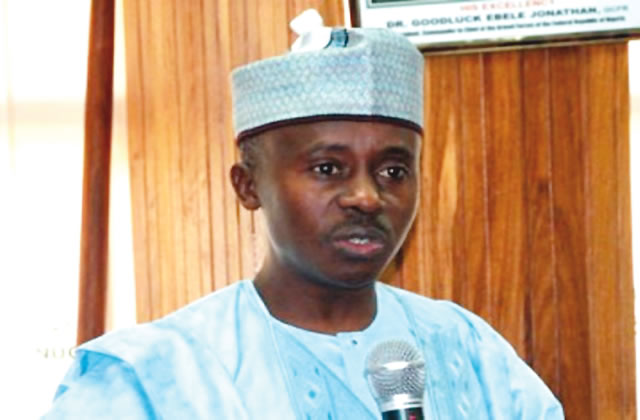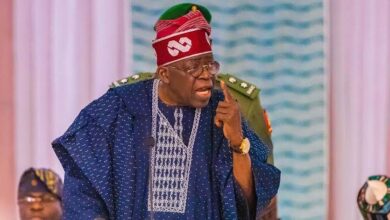Farouk Lawan Released After Completing Prison Sentence

Former member of the Nigerian House of Representatives, Farouk Lawan, has been released from prison after serving a five-year sentence for corruption. Lawan, who was convicted for demanding and accepting a $500,000 bribe, regained his freedom after the Supreme Court upheld his conviction on January 26, 2024.
Lawan, who once wielded significant influence as the chairman of the House of Representatives ad-hoc committee investigating the fuel subsidy regime, was found guilty of soliciting a $3 million bribe from Nigerian billionaire and oil magnate, Femi Otedola, in 2012. The bribe was part of an attempt by Lawan to remove Otedola’s company, Zenon Petroleum and Gas, from a list of firms implicated in the fuel subsidy fraud probe.
During the subsidy investigation, which exposed widespread corruption in Nigeria’s fuel subsidy program, Lawan initially presented himself as a staunch advocate against corruption. However, the scandal erupted when Otedola revealed that Lawan had demanded a bribe, and the businessman cooperated with security agencies to catch him in the act. Lawan was recorded collecting $500,000 as part of the agreed $3 million bribe, leading to his eventual arrest and prosecution.
The case dragged on for years, with several legal battles culminating in his conviction in 2021. He was sentenced to five years in prison by the Federal High Court in Abuja. Lawan appealed the ruling but met with defeat at every judicial level. In January 2024, the Supreme Court affirmed his conviction, marking the end of the legal road for the former lawmaker.
Lawan’s downfall was a significant chapter in Nigeria’s ongoing struggle against political corruption. His case underscored the pervasive nature of corruption in the country’s oil and gas sector, particularly regarding the management of the fuel subsidy regime. The subsidy system had long been criticized for its opacity, with billions of dollars in government funds lost to fraudulent claims by companies.
The public scandal and Lawan’s eventual conviction served as a cautionary tale about the consequences of corruption in public office. While some Nigerians celebrated his conviction as a victory for anti-corruption efforts, others questioned the sincerity of the government’s broader fight against graft, citing the selective nature of high-profile prosecutions.
Despite the conviction, Lawan’s case is a reminder of the broader systemic issues within Nigeria’s governance and its oil sector, which remains a significant part of the country’s economy but is frequently plagued by corruption and mismanagement. As a lawmaker, Lawan was seen as part of a growing group of reform-minded politicians, which made his involvement in the bribery case all the more shocking to the public.
With his release, the future of Farouk Lawan remains uncertain. His political career is effectively over, but his case has left a lasting mark on Nigeria’s political and legal landscape. It also raised questions about the effectiveness of legal and institutional frameworks in combating corruption, as cases of high-level corruption continue to dominate headlines in Nigeria.
As the public reflects on the conclusion of Lawan’s case, attention now turns to whether Nigeria will take further steps to reform its fuel subsidy system and ensure greater transparency in the management of public resources. Lawan’s conviction and imprisonment were steps in the right direction, but the country’s ongoing battle against corruption remains far from over.



